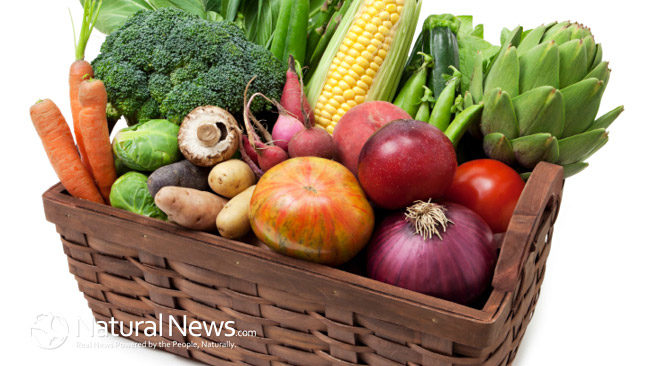“Clean Eating” is the latest buzz phrase amongst health conscious people. Although clean eating is nothing new, these days we hear many people talk about a clean and healthy lifestyle. But what exactly is clean eating and how to start?
What Is Clean Eating
Clean eating principles are based on eliminating harmful toxins and additives in your life to maximize your energy, promote healthy weight, and optimize overall health. It all comes down to eating healthy, unprocessed, whole foods in their most natural state.
So clean eating is all about going back to the basics of choosing foods which are grown and sold with a minimum of processing.
“Don’t eat anything your great-great-grandmother wouldn’t recognize as food”
– Michael Pollan –
12 Simple Rules To Live A Clean And Healthy Lifestyle
1. Avoid or eliminate processed foods
They may be convenient if you live a fast-paced lifestyle, but they are loaded with trans fats, sodium, refined sugars, artificial sweeteners, refined grains, and chemical additives or preservatives.
2. Avoid alcohol as much as possible
Alcohol is a toxic and harmful substance. Nothing wrong with having a glass of wine or a beer once in a while, but if you plan to drink alcohol keep it low and don’t exaggerate.
3. Avoid sodas and fruit juices
Sodas, even the diet versions, and commercially available fruit juices are full of refined sugars, artificial sweeteners, and harmful additives.
4. Avoid refined oils or margarines, opt for healthy fats instead
Most vegetable and seed oils are highly processed and not suitable for cooking. Healthy fats include organic extra virgin coconut or olive oil, organic grass-fed ghee, avocados, seeds, and nuts.
5. If you can’t pronounce it, don’t eat it
Artificial ingredients and preservative are all made in a lab. Make sure to read labels if you buy food in a bag, can, or box. And as the saying goes: “If you can’t pronounce it, don’t eat it”
6. Stay Hydrated
Make sure to drink enough plain, pure water or herbal teas during the day. Water helps your body to flush out toxins, fat, and waste materials. How much water you need a day depends on your weight and how much you exercise. A good rule of thumb is to drink at least 8 glasses of pure water a day.
7. Eat plenty fresh vegetables and fruits
No need to count calories here. Eat as much as you want and add as many colors to your plate as possible. They add up to your daily water and nutrient intake, and alkalize your body. (Click here for more info)
8. Chose whole grains over refined
Avoid refined grains and opt for high quality grains that are the least processed. If you are gluten-intolerant or have wheat allergies opt for the gluten-free varieties. Whole grains include brown rice, amaranth, whole wheat, barley, buckwheat, bulgur, corn (but watch out for GMOs), millet, quinoa, rye, spelt, and oats.
9. Opt for organic as much as possible
This is the best way to avoid pesticides, GMOs and other harmful chemicals. Although this can be quite expensive and not feasible for many of us, see what fits your budget and opt for organic as much as possible. Some conventional foods are more sprayed with chemicals or genetically modified than others. The environmental working group offers a great list, and although the list may not be complete, it is a good start.
10. Go fresh and local
Buying your produce locally at farmer’s markets is a great way to support the local economy, reduce carbon footprint, and buy organic foods without breaking the bank.
11. Reduce meat and dairy intake
If you are not a vegetarian or vegan reduce your meat and dairy intake by half (or less if you’re up for it). Spend the money you’ll save with that on organic animal products instead. Lower quality meats are often from animals fed with GMO crops and injected with hormones.
12. Say NO to supplements and powders
If you eat a well-balanced diet with plenty of whole fresh foods there will be no need to take supplements. Even the organic supplements have gone through a processing process and chemicals or other questionable compounds can end up in the final product.
Clean eating is a lifestyle change and must not been seen as a diet. Losing and maintaining your weight will come as a positive side effect of a clean and healthy lifestyle.
So clean eating is all about making long term changes and redefining your relationship to food. No need to change everything at once, make smart achievable changes that will last forever. No need to count calories or live a cranky, restrictive lifestyle.
If you stick to the above mentioned rules most of the time, you’ll be well on your way to eliminate most toxins out of your diet and improve overall health.
Clean eating isn’t about perfection. It is all about eating clean and healthy most of your time. Indulging yourself once in a while with a double chocolate muffin or pizza isn’t going to harm your health or weight and you shouldn’t feel guilty about those splurges as long as you eat healthy and clean most of the time.
If you are serious about detoxing, losing weight, and changing your lifestyle without feeling hungry and counting calories, click here





